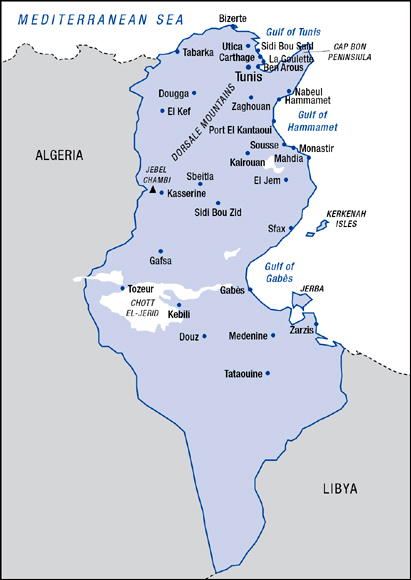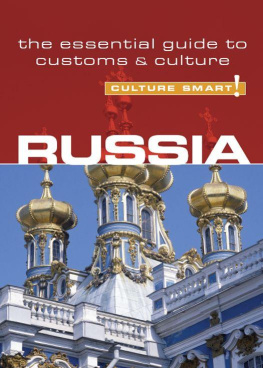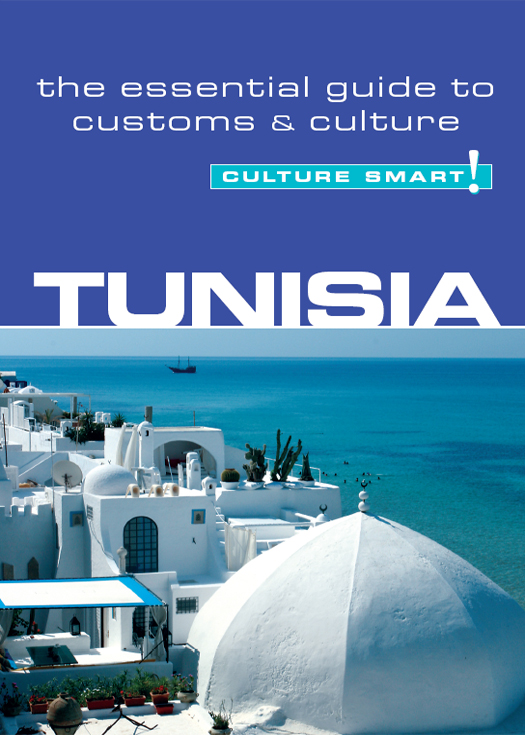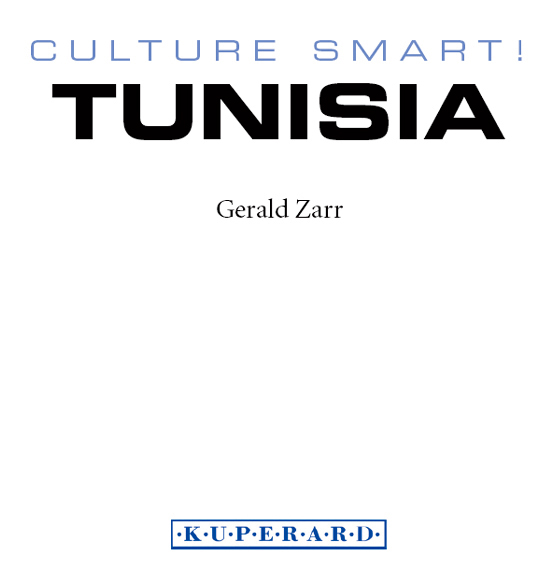First published in Great Britain 2009
by Kuperard, an imprint of Bravo Ltd
59 Hutton Grove, London N12 8DS
Tel: +44 (0) 20 8446 2440 Fax: +44 (0) 20 8446 2441
www.culturesmart.co.uk
Inquiries:
Culture Smart! is a registered trademark of Bravo Ltd
Copyright 2009 Kuperard
All rights reserved. No part of this publication may be reprinted or reproduced, stored in a retrieval system, or transmitted in any form or by any means without prior permission in writing from the publishers.
Series Editor Geoffrey Chesler
eISBN: 978-1-85733-619-1
British Library Cataloguing in Publication Data
Cover image: Old town, Hammamet. www.Vuk8691/Dreamstime.com
Images on Bertrand Bouret
v3.1
About the Author
GERALD ZARR is an American writer and consultant on international development. He was born in Worcester, Massachusetts, and graduated from Clark University with high honors in international relations. He earned his JD at New York University School of Law. He then practiced law with the international law firm of Shearman & Sterling, and taught law in Liberia and at Case Western Reserve University in Cleveland, Ohio. As a senior diplomat in the US Foreign Service, he lived in Pakistan, Tunisia, Ghana, Egypt, Haiti, and Bulgaria for more than twenty years. Since retiring from the Foreign Service in 1995, Gerald Zarr has worked as an international consultant in Eastern Europe, the former Soviet Union, and the Middle East. His articles have appeared in the International Herald Tribune, the Los Angeles Times, and other publications. As an enrichment lecturer for various cruise lines, he also speaks on historical and cultural topics on Baltic, Mediterranean, Black Sea, Caribbean, Indian Ocean, and Pacific cruises.
The Culture Smart! series is continuing to expand.
For further information and latest titles visit
www.culturesmart.co.uk
The publishers would like to thank CultureSmart!Consulting for its help in researching and developing the concept for this series.
CultureSmart!Consulting creates tailor-made seminars and consultancy programs to meet a wide range of corporate, public-sector, and individual needs. Whether delivering courses on multicultural team building in the USA, preparing Chinese engineers for a posting in Europe, training call-center staff in India, or raising the awareness of police forces to the needs of diverse ethnic communities, it provides essential, practical, and powerful skills worldwide to an increasingly international workforce.
For details, visit www.culturesmartconsulting.com
CultureSmart!Consulting and CultureSmart! guides have both contributed to and featured regularly in the weekly travel program Fast Track on BBC World TV.
contents
Map of Tunisia

introduction
Sitting at the northernmost bulge of North Africa and thrusting toward Europe, Tunisia is Africa at its most Mediterranean and Arabia at its most cosmopolitan. These comparisons are appropriate, because from its earliest days Tunisia has been open to influences from abroad. All the great empires of the Mediterranean basin have ruled Tunisia, leaving fascinating vestiges of their rule. Africathe Roman name for Tunisiaeventually came to describe the immense continent beyond its borders. Then Islams conquering armies drew the country within the Arab sphere of influence, where it remains.
Tunisia has more than eight hundred miles of coastline, cork oak forests and rolling mountains, and in the south, the salt lakes and seemingly alien architecture of the desert that were transformed into the planet Tatooine in the Star Wars films.
Tunis is a bustling Mediterranean metropolis of nearly two million people. The narrow streets of its medieval medina are crammed with vendors of antiques, jewelry, pottery, carpets, books, perfumes, dried fruit, and spices. A mere ten miles away lie the remains of the Phoenician and Roman city of Carthagea treasure trove for the history buff.
Unlike its neighbors, Tunisia is not oil-rich, so it must rely on the skills and entrepreneurial spirit of all of its people to make its way in the world. Women play a role in national development that is scarcely equaled in any other Arab country.
This book explores the codes and paradoxes of Tunisian lifea North African country that looks to France and Italy as its reference points, but remains determinedly Arab and Muslim. Tunisians are warm and hospitable, but for the uninitiated there can be pitfalls galore in social interaction. Candor and honesty are not valued as highly as respect, dignity, and avoiding stigma.
The Tunisia that visitors tend to see is modern, progressive, and prosperous; but many traditionally minded people still believe in the power of blessings and curses, explain difficult times as maktoub (fate), and view illness as the result of maliciously intended magic.
Culture Smart! Tunisia aims to start you on the path to understanding this complex, rich, and fascinating culture by opening a window into the private lives of Tunisians, to show how they behave at home and how they react to foreign visitors. The brief historical overview provides an insight into the way the past has helped to shape the Tunisian present. There are chapters on customs and traditions, with advice on how to make friends and avoid faux pas. For the business traveler, there is practical guidance on how to get things done, and how to make the most of the opportunities that present themselves.
Culture Smart! Tunisia seeks to make your trip as rich as possible, to take you beyond the clichs to the real people. Welcome to Tunisia. Marhaba!
Key Facts
| Official Name | Al Jumhuriyyah at-Tunisiyyah | Tunisia is an associate member of the European Union. |
| Capital City | Tunis (population approx. 1.8 million) |
| Other Cities | Sfax (pop. 281,000), Nabeul, Gabs, Sousse, Kairouan, Bizerte |
| Population | Approx. 10.3 million |
| Area | 63,170 sq. miles (164,000 sq. km approx.) |
| Geography | Situated at the northernmost bulge of central North Africa. Its neighbors are Algeria and Libya. |
| Terrain | Dorsale mountain range across north central part of country; fertile northern and central coastal plain; semiarid central plateau; desert in south |
| Climate | Varies greatly. Three general climates: Mediterranean (mild, wet winters, hot summers); Dorsale mountains (cold, wet winters, occasional snow, hot summers); desert (hot with little rain, cold nighttime temperatures) |
| Natural Resources | Phosphates, salt, iron ore, natural gas, crude oil |
| Language | Tunisian Arabic (Tunsi) | Modern Standard Arabic is is spoken. French is also used in literature and the media. |





